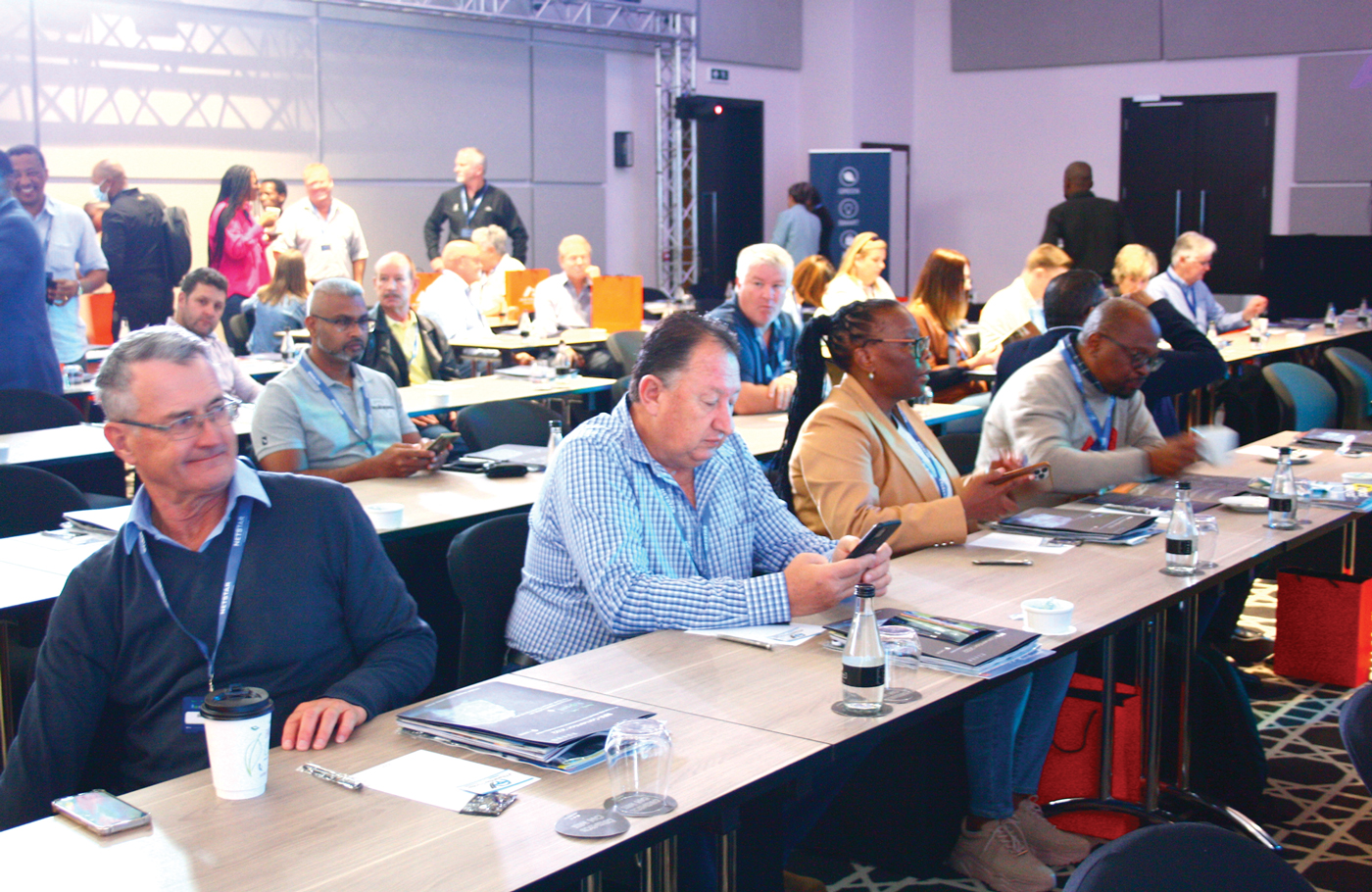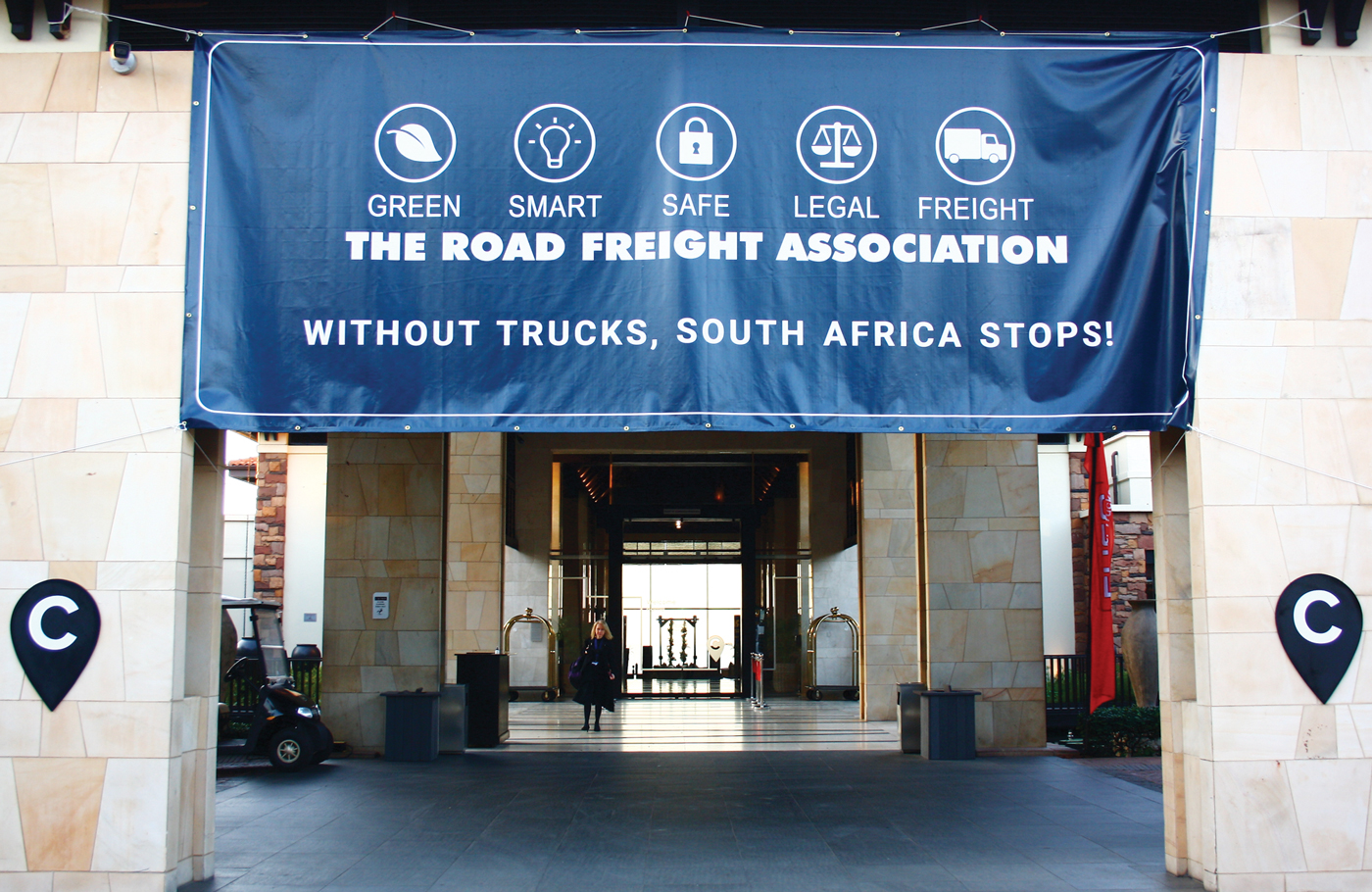RFA Convention: many challenges ahead
RFA Convention: many challenges ahead
From diesel compatible with Euro 5 specifications to a crisis at South Africa’s ports… this year’s RFA Convention was a mixture of good and bad news. COLIN WINDELL reports from Zimbali.
Astron Energy’s Milnerton oil refinery will be restarted later this year, geared towards producing diesel compatible with Euro 5 specifications. This, more than anything, framed the Road Freight Association’s theme for its 2022 Convention, “Ready… Set… Reset”, when confirmed by its chief executive officer, Thabiet Booley. Booley also stated that the intention is to ramp up to full Euro 5 specification.
Astron Energy, which used to be Chevron, is also investing heavily in a major rebranding exercise that will include all of its Caltex service stations.
“The diesel we will be producing at the upgraded refinery will be fully compatible with Euro 5 truck engines being introduced by several companies, and it will provide a much better overall efficiency of operation,” said Booley, adding, “We are actively partnering with organisations such as the RFA in order to understand the needs of the industry so we can deliver solutions.”
Payloads on the up!
When the country’s GDP is growing, payloads tend to go up. According to Chris Holdsworth, chief investment strategist at Investec, this is a primary driver of transport growth. He also warned that, on a global level, oil and fuel spend is going up, exacerbated by a refinery shortage and pointed to the fact that Chinese refineries have been closed under that country’s strict Covid regulations.
“This is a factor that could push countries around the world into recession. The US oil production from its land-based wells has increased massively but this has not put the brakes on the rise in oil prices. However, the median global inflation rate is around 8%, but South Africa is lower than that and I believe the trend is for it to go lower,” he said.
Holdsworth added that South Africa can still expect GDP growth of around 2,5% this year. Even though the two expected rate hikes coming from the US will likely force additional interest rate increases locally, he does not believe there is a need to increase rates to put the country into a recession.
With both Amazon and Walmart having restored their inventories to pre-Covid levels, the pressure on shipping has been eased, even though the world container index is still 25% off its peak and exports count for 8% of South Africa’s GDP. “The volumes are down, but prices are up,” said Holdsworth.


A system in crisis
Exports form a vital link in the global supply chain and directly affect road transport. South African ports have been rated as among the worst in the world – with Cape Town topping that list – clearly showing that the whole system is in crisis, according to Louise Wiggett, chief executive officer of Global Trade Solutions.
“If you are a cross-border transporter, you will know Africa is not for sissies. In a period of rapid change, we need to recognise that change and react to it. We need to get cross-border trade flowing, but must also have the systems to monitor congestion,” she explained.
“Sub-Saharan Africa is still buried in paperwork surrounding the movement of trucks and goods. Compliance is slow and laborious. Yet, several countries in central Africa – including Rwanda – have a system up and running where every truck can be tracked, congestion points identified before they become a problem, and solutions put in place timeously.”
They say a picture is worth 1 000 words, and Wiggett prefaced her remarks with photographs taken from her room at the Ballito hotel where the convention was taking place, showing 25 ships waiting to access Durban harbour.
Government aware of crisis
Off-topic from his main keynote address, Minister of Transport Fikile Mbalula responded to the port crisis by saying government was fully aware of the problems and was working on solutions to modernise the facilities and introduce systems to streamline operations, starting with Cape Town.
“Our national policy trajectory is anchored in the National Development Plan (NDP), which enjoins us to invest in a strong network of economic infrastructure designed to support the country’s medium- and long-term objectives, if we are to achieve sustainable and inclusive growth by 2030,” he said. “Achieving this vision requires targeted development of transport, as one of the sectors that make up the network industries.
“The NDP vision includes recognition of the need for private sector participation. The freight system in South Africa is composed of a number of networks that link the country as well as the region. This is achieved through different modes of transport to deliver a wide range of services and goods,” he continued. “This function is dependent on the infrastructure and operations of the various modes, as well as the effectiveness of the intermodal interface.
“The exponential growth of freight traffic in the last decade continues to put pressure on the infrastructure and operations to deliver acceptable, cost-effective service, in order to deal with the growth and level of demand,” he told delegates.
Roads integral to economy
Mbalula also pointed out that South Africa’s road network – both at primary and secondary levels – continues to play an important role in the development of the country`s economy: “South Africa’s road network is the largest and longest interconnected road network in sub-Saharan Africa, covering approximately 750 811 km of roads. While the South African National Roads Agency (SANRAL) is responsible for the primary network, provinces and municipalities are responsible for the secondary and tertiary networks.”
However, this is not without its difficulties. “Amongst the many challenges we seek to tackle, we remain burdened with the intractable challenge of the road maintenance backlog. Road freight transport has recorded a 48% growth in the last decade, with heavy goods vehicles making up 34% of traffic on the N3. It is worth noting that heavy goods vehicle crashes on that route are now at par with light vehicles,” he noted.
“We are concerned the levels of enforcement are not keeping pace with the growth of traffic, thereby aggravating the cost to the economy, estimated to be in excess of R300 billion a year.”
Mbalula said transport operators need to accept a certain level of accountability. “We currently have no system for monitoring the performance of commercial road freight operations in South Africa. The regulation of commercial transport as a separate activity from road traffic management is necessary because transport activities take place in the public space, using state-owned infrastructure,” he asserted.


“Transport operators must therefore be held accountable for the externalities. These are noise, accidents, pollution, and damage to infrastructure. Quality-regulated competition in the industry levels the playing field for operators and increases efficiency, while reducing external costs to society and government.”
Mbalula appeared keen to further regulate the industry. “Regulation of the standards of operation of commercial transport – both passenger and goods – is an essential function of the transport authorities in all countries. The current regulatory framework and processes are not adequate to achieve the goal of operational compliance within a quality-regulated monitoring system,” he said.
“The lack of a single Road Transport Authority to manage the monitoring and control of commercial transport has left decision-making fragmented and ineffective. The wide range of sub-standard features in the regulation and management of the mode underscores the need for the re-definition of the South African Road Freight Strategy.
“The transport and logistics sector has failed to support effective regional integration and the development of trade within the region. It further faces increasing pressures for harmonisation of standards and liberalisation of transport in the interest of effective cross-border trade.”
Hefty cost of overloading
Mbalula pointed out that road freight movement places a serious fiscal burden on government – particularly where heavy vehicle overloading is concerned. “The heavy vehicle operators are not paying the corresponding cost of damaging the road network. Hence, prices appear cheaper than is actually the case. Secondly, the impact of heavy vehicle accidents on both the fiscus and communities has not been accounted for in the costs of road freight transport,” he said, continuing, “The environmental impact of road-based freight transport through emissions and cargo spillages is often not incorporated. In South Africa, contrary to international best practice, road is the only mode of transport that is not adequately regulated. There is no effective regulation of road transport operators as business entities.”
He was quite forceful in stating that it is essential for road freight operators to be held responsible for compliance with all standards defined for vehicles, drivers, loads, operations, and the elimination of problems caused by their activities, pointing out that this is the primary cause of the current challenges within the freight logistics supply chain.
“There are currently major problems with several aspects of enforcement of operator standards and all too often, it is the driver who receives the summons, and the operators are not implicated due to the overall ineffectiveness of the operator registration system,” Mbalula asserted.
The big issue: foreign drivers
Referring to the unrest situation and the torching of trucks, Mbalula said, “The major point of contention is the purported illegal employment of foreign drivers – in the place of equally skilled South African drivers – by the road freight industry.
“However, we note the looting and torching of trucks were also due to the riots which spread to various parts of the country. It is said heavily armed individuals hijacked trucks in an attempt to derail services and scare away foreign national drivers.
“Effective regulation of the road industry will ensure truck owners comply with the law by registering their truck drivers to ensure compliance with labour laws. This will also assist the government in understanding training shortfalls and mismatches where they exist in the industry to ensure that South African drivers are prioritised to curb the high unemployment rate in the country.
“It is of paramount importance we work closely with the private sector to ensure equitable access to the industry that has been historically dominated by a particular section of the population. Working with industry associations such as the RFA and TASA will ensure efforts to transform the trucking industry receive the necessary support,” he emphasised. “Violence is never an answer, as it leads to economic setbacks we cannot afford as a country.”
Published by
Focus on Transport
focusmagsa




